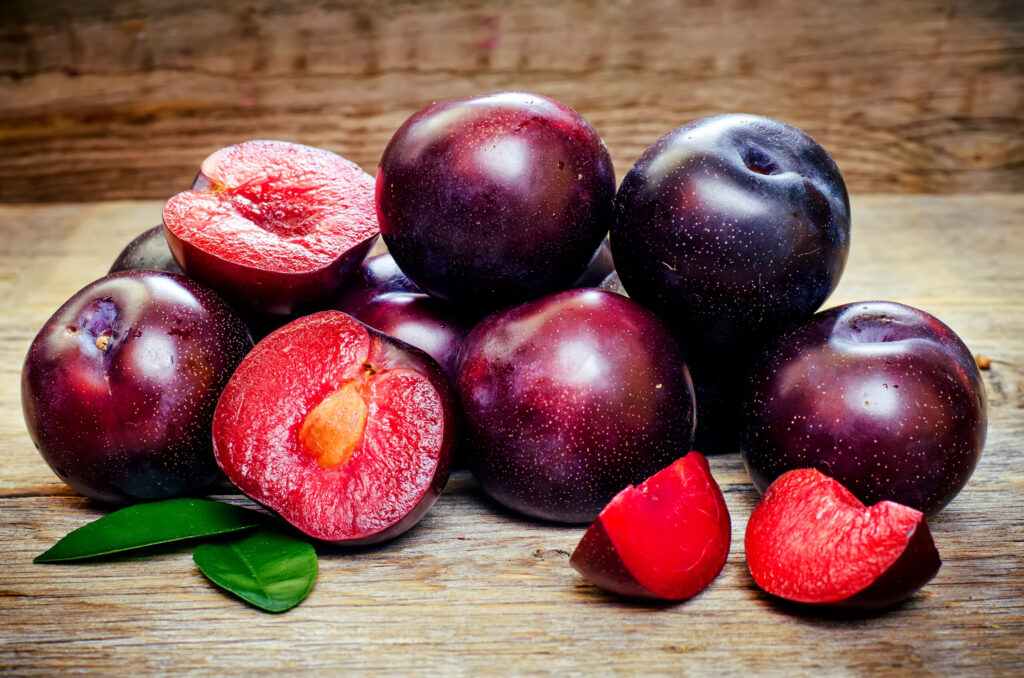A Comprehensive Guide to Plums and Digestive Health
Plums, whether enjoyed fresh or dried as prunes, are not only delectable but also offer numerous health benefits, particularly for digestive wellness. Rich in essential nutrients and beneficial compounds, plums play a crucial role in maintaining a robust digestive system. This guide delves into how plums support digestive health and how you can seamlessly incorporate them into your diet for maximum benefits.
Nutritional Profile of Plums
Plums are loaded with vitamins, minerals, and antioxidants that bolster overall health. Here’s why plums are a powerhouse for digestive health:
- Fiber: Plums are an excellent source of both soluble and insoluble fiber, aiding digestion and preventing constipation.
- Vitamins: High in vitamin C, plums support immune function and enhance iron absorption. They also provide vitamin K, essential for blood clotting and bone health.
- Minerals: Rich in potassium, plums help maintain fluid balance and support proper muscle and nerve function.
- Antioxidants: Plums contain antioxidants like phenols and flavonoids that protect cells from oxidative stress and inflammation.

How Plums Benefit Digestive Health
- Promote Regular Bowel Movements
The high fiber content in plums facilitates regular bowel movements. Dietary fiber adds bulk to the stool, easing its passage and reducing the risk of constipation. Regular consumption of plums supports smooth and efficient digestion.
- Support Gut Health
Plums contain prebiotics that nourish beneficial gut bacteria, promoting a balanced gut microbiome. A healthy gut microbiome is vital for optimal digestion, nutrient absorption, and overall gut health.
- Aid in Detoxification
The fiber in plums helps eliminate waste products from the digestive tract, aiding in the body’s natural detoxification processes. Regular bowel movements facilitated by plums assist in removing toxins and waste more effectively.
- Relieve Digestive Discomfort
Plums, especially prunes, have a natural laxative effect due to sorbitol, a sugar alcohol that draws water into the intestines, softening the stool and easing its passage. This can be particularly beneficial for those experiencing occasional digestive discomfort or constipation.
- Reduce Inflammation
The antioxidants in plums, including vitamin C and phenolic compounds, possess anti-inflammatory properties. Reducing inflammation in the digestive tract can help alleviate symptoms of inflammatory digestive disorders and promote overall gut health.

How to Incorporate Plums into Your Diet
- Fresh Plums: Enjoy fresh plums as a nutritious snack or add them to salads for a burst of flavor and nutrients.
- Dried Plums (Prunes): Use prunes as a natural remedy for constipation. They can be enjoyed on their own or added to dishes like oatmeal or yogurt.
- Plum Smoothies: Blend fresh plums into smoothies for a nutritious and tasty beverage that supports digestive health.
- Plum Sauces and Jams: Create homemade plum sauces and jams to use as toppings for whole-grain toast or as additions to recipes for extra flavor and nutrition.
- Baking: Incorporate chopped plums into baked goods such as muffins or cakes to enhance flavor and increase fiber content.
Conclusion
Plums are a versatile and nutrient-dense fruit that can significantly enhance digestive health. Their high fiber content, prebiotic properties, and antioxidant benefits support regular bowel movements, gut health, and overall digestive well-being. By incorporating plums into your diet in various forms, you can enjoy their delicious flavor while reaping their digestive health benefits.
To improve your digestive health, consider making plums a part of your daily routine. Their natural benefits can help you maintain a healthy digestive system and contribute to your overall wellness.
